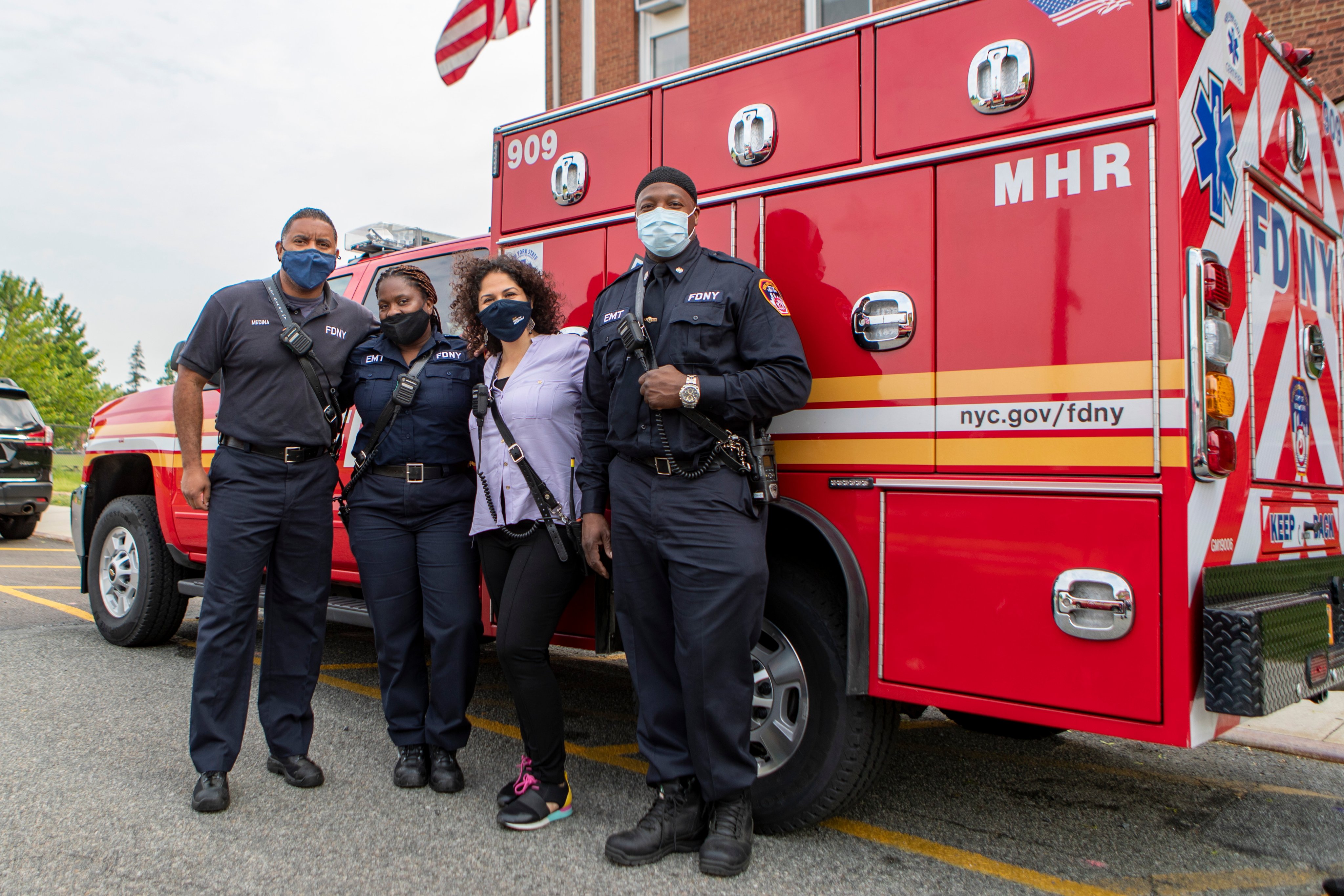
NYPD mental health emergency pilot shows early success in responding to crises
From June 6 to July 7, dispatchers flagged 138 mental health emergencies in the three precincts designated for the program.
A New York City pilot program that sends social workers instead of police officers to respond to mental health crisis calls is showing early signs of success, according to city data.
The Behavioral Health Emergency Assistance Response Division, or the B-HEARD program, launched in Harlem in June and has sent teams of three unarmed, behavioral health specialists to respond to more than 100 911 calls.
During the first month of the pilot, from June 6 to July 7, dispatchers flagged 138 mental health emergency calls in three police precincts as eligible for the new teams.
As part of the new "B-HEARD" program (Behavioral Health Emergency Assistance Response Division), NYC Health + Hospitals social workers will be responding to 911 calls for someone with a #MentalHealth emergency.
— NYC Health + Hospitals (@NYCHealthSystem) May 28, 2021
Read more: https://t.co/R39nHa6pgF pic.twitter.com/TjOPh5NjKN
Once the teams arrived on the scene, about 95% of the people in crisis accepted medical assistance. When there is a traditional response from police and EMS workers, about 82% of people in crisis accept help.
This data also showed that behavioral health teams were more selective about the kind of medical help offered to patients. Police officers and paramedics typically send 82% to a hospital for treatment. The social workers only transported about half of patients to the hospital, and all of them received follow-up care.
About 25% of individuals were treated where they were, while 20% were taken to a community-based care location that is not a hospital.
Ashwin Vasan, CEO of Fountain House, a nonprofit that operates community-based mental health programs, told USA Today that the data shows that these situations are “being deescalated.”
Spoke to @RyanW_Miller @USATODAY about responding to mental health crises in a humane way that reduces violence + connects folks to care.
— Ashwin Vasan (@ashvasnyc) July 24, 2021
This is the redesign of the front end of the mental health system that we need, here in NYC + beyond. #CareRespondershttps://t.co/bJQr3zDUqa
Vasan believes the results show that when individuals in crisis are handled with humanity and compassion, there are no arrests and there is little to no violence.
Instead, people find treatment and “connections into care.”
However, Ruth Lowenkron, director of the Disability Justice Program at New York Lawyers for the Public Interest, said there needs to be more non-police teams responding, and hospitalizations should be lower.
Lowenkron told USA Today that in 2015 there were 18 people who experienced a mental health crisis in NYC and died during police encounters.
RELATED CONTENT
"We're talking about lives here," Lowenkron said.
She wants to see more data on who is being hospitalized, noting that in most cases, a hospital is not the most ideal space for those in crisis.
"What are their circumstances? What caused you to determine that they needed to be transported to a hospital in that large number? And then, what happened to them when they got to the hospital?" Lowenkron asked.
Programs like B-HEARD have become increasingly popular in U.S. cities over the last few years, as more and more have taken to the streets to protest racial injustice and police violence.
NYC sent non-police teams to respond to mental health calls for a month.
— Insider News (@InsiderNews) July 24, 2021
Data shows that more people got help and fewer were hospitalized.
Here’s what happened. https://t.co/GAvQ9B9nyd pic.twitter.com/9ohnEze6Hu
A 2015 study by the Treatment Advocacy Center found that for people with an untreated mental illness, the risk of being killed by law enforcement is 16 times higher than the rest of the population.
Vasan told USA Today that the pilot program’s success should be taken as a call to expand the efforts.
“We have to invest not only in a narrow expansion of health-first crisis response, but in really sufficient investment in stronger mental health infrastructure to prevent crisis and to address mental health needs post crisis,” he said.











LEAVE A COMMENT:
Join the discussion! Leave a comment.